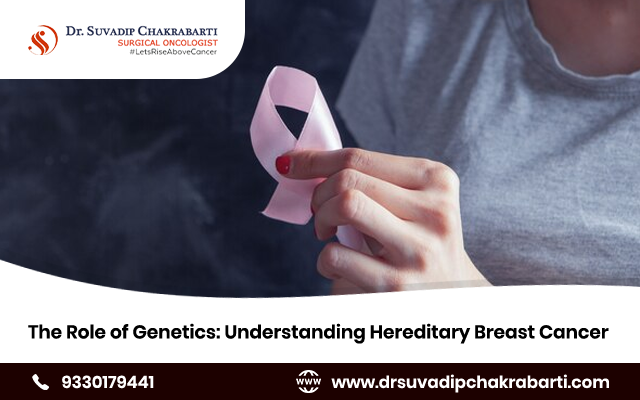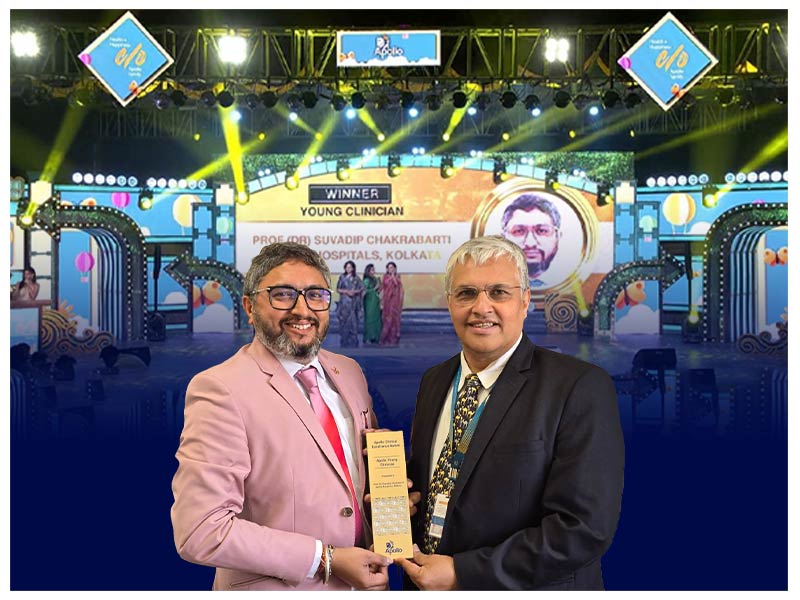Breast cancer is a condition that comes with various risk factors, including genetics. Understanding the role of genetics in breast cancer can help individuals and healthcare professionals make decisions about prevention, screening, and treatment. Dr Suvadip Chakrabarti, a leading breast cancer doctor in Kolkata, sheds light on hereditary breast cancer and its implications.
What is Hereditary Breast Cancer?
Hereditary breast cancer refers to the condition that is caused by inherited genetic mutations. These can increase the risk of developing breast cancer and are passed down through families.
Genes Associated with Hereditary Breast Cancer
Two genes commonly associated with hereditary breast cancer are BRCA1 and BRCA2. Mutations in these genes increase the risk of developing both breast and ovarian cancer. However, it’s essential to note that not all breast cancer cases are due to BRCA mutations. Other genes, such as TP53, PTEN and PALB2, also play a role in hereditary breast cancer.
Who is at Risk?
While anyone can develop breast cancer, individuals with a family history of the disease are at higher risk, especially if close relatives, have been diagnosed with breast cancer at a young age.
Screening and Prevention
Early detection is crucial in managing hereditary breast cancer. Dr Chakrabarti, a trusted breast cancer doctor in Kolkata, emphasizes the importance of regular breast cancer screening, including mammograms and breast MRIs, for individuals with a family history of the disease or known genetic mutations. Additionally, preventive measures, such as prophylactic mastectomy or oophorectomy (removal of the ovaries), may be recommended for individuals at high risk.
Genetic Testing and Counselling
Genetic testing can help identify inherited mutations that increase the risk of breast cancer. Dr Chakrabarti stresses the importance of genetic counselling before and after testing to help individuals understand their risk, make informed decisions, and cope with the emotional implications of genetic testing results.
Personalized Treatment
Understanding the genetic profile of a patient’s breast cancer can also guide treatment decisions. Dr Chakrabarti highlights the importance of personalized medicine, where treatment plans are tailored to the individual’s unique genetic makeup and tumour characteristics. This approach can lead to more effective treatment outcomes and improved patient satisfaction.
Hereditary breast cancer is a complex condition influenced by genetic factors. By understanding the role of genetics in breast cancer, individuals can take proactive steps to manage their risk and seek appropriate medical care. For expert guidance and personalized care, individuals in Kolkata can turn to Dr Suvadip Chakrabarti, a leading breast cancer doctor in Kolkata dedicated to providing comprehensive care and support to patients and their families.


